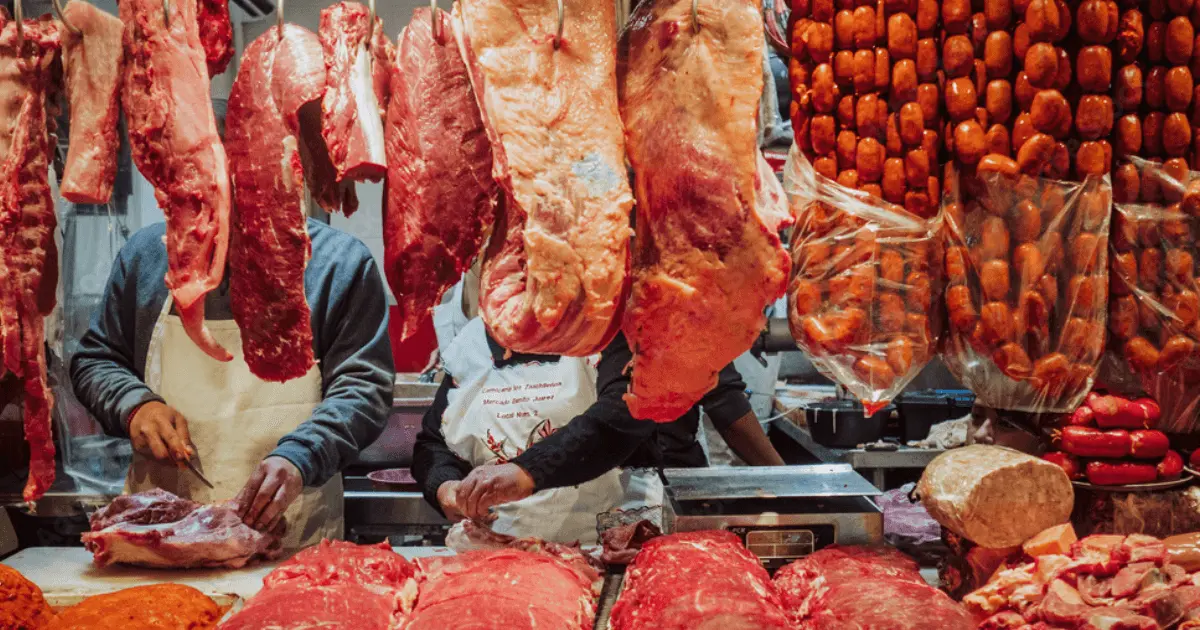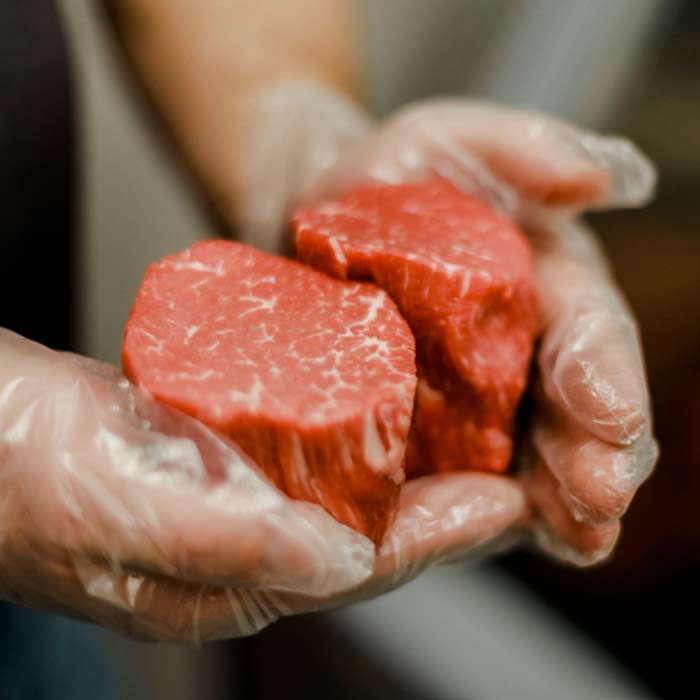Why Purchasing at a Neighborhood Meat Market Guarantees Fresh, High-Quality Cuts
Shopping at a neighborhood meat market offers distinct benefits that usually go undetected by customers accustomed to larger retail chains. These markets offer direct accessibility to fresh, premium cuts, an outcome of minimized transport time from farm to counter. This not just improves flavor however additionally sustains neighborhood farmers, promoting area partnerships and sustainable practices. Strenuous high quality control gauges make certain that each acquisition fulfills high standards of security and quality. Yet, the implications of selecting local expand beyond prompt advantages, prompting a more detailed examination of what this selection really suggests for both customers and the local economy.
Advantages of Regional Sourcing
In the realm of food procurement, the advantages of neighborhood sourcing stick out prominently. By purchasing meat from neighborhood markets, consumers gain straight accessibility to items that are commonly fresher and much more delicious than those found in larger, industrial grocery stores. Regional sourcing minimizes the moment and distance food takes a trip from farm to table, which not just improves preference but additionally protects nutritional worth.

Moreover, neighborhood sourcing commonly supplies openness relating to the origins of the meat. Customers can make inquiries regarding the farming practices utilized, pet welfare criteria, and whether the meat is organic or grass-fed. This information equips customers to make enlightened decisions lined up with their values.
Quality Control Specifications
Neighborhood meat markets frequently stick to strenuous quality assurance requirements that guarantee the products supplied meet high safety and freshness benchmarks. These requirements typically incorporate various stages of the meat production process, from sourcing to taking care of and storage space.
First, regional markets commonly establish strict distributor criteria, making certain that just respectable ranches and producers are utilized - bagley meat market edwardsville il. This reduces the chance of contamination and promotes higher animal well-being requirements. In addition, many regional meat markets apply routine examinations to validate that the meat is refined under sanitary problems, better reducing wellness threats
Temperature level control is another critical facet of top quality assurance. Neighborhood meat markets frequently keep an eye on refrigeration systems to keep ideal storage space temperature levels, making sure that meat remains secure and fresh for usage. The application of traceability systems permits markets to track the beginning of their items, offering openness and accountability.
Lastly, team at local meat markets are typically trained to identify indications of wasting and comprehend proper handling methods. This dedication to quality control not only elevates the total standard of the meat however additionally cultivates customer trust, making local meat markets a reliable source for top notch cuts.
Supporting Regional Farmers
Supporting neighborhood farmers is crucial for cultivating a sustainable food system and enhancing community click to read more strength. When consumers choose to patronize neighborhood meat markets, they straight add to the resources of farmers in their area. This not only sustains the local economy however likewise strengthens the agricultural sector, making sure that it remains feasible and vivid.


Additionally, supporting local farmers promotes a sense of neighborhood and link in between producers and customers. It encourages openness in food sourcing and imparts depend on, as customers can establish connections with the people that increase their food. This direct connection eventually brings about an extra involved and educated public, which is crucial for supporting for sustainable farming techniques in the future.
Sustainable Practices
Lasting techniques in meat markets play a crucial duty in advertising ecological stewardship and making sure pet well-being. Local meat markets frequently prioritize sourcing their items from ranches that implement moral and lasting farming methods. These practices include rotational grazing, which assists keep dirt health and wellness and reduces carbon exhausts, together with minimizing using YOURURL.com prescription antibiotics and hormonal agents in livestock.
Additionally, local meat markets normally highlight openness in their supply chains. Consumers are offered with information pertaining to the beginning of their meat, enabling them to make informed options that line up with their worths. By sustaining regional farmers who practice lasting methods, customers add to the preservation of biodiversity and the reduction of transportation exhausts connected with long-distance meat circulation.
Additionally, many regional meat markets take part in waste decrease techniques, such as making use of every part of the pet and advertising off-cuts that may otherwise go unsold. By promoting an extra sustainable strategy to meat usage, these markets not just supply premium products however likewise contribute positively to the environment and pet welfare. Basically, purchasing at a regional meat market lines up consumers with a broader movement towards responsible and ethical food sourcing.
Individualized Customer Support
Purchasing at a meat market often includes even more than simply the items used; it is also concerning the experience and the connections built in between consumers and team. Customized customer care is a trademark of neighborhood meat markets, setting them aside from bigger grocery chains. Well-informed personnel put in the time to understand private consumer choices, guaranteeing that each browse through is customized to specific requirements.
Clients take advantage of professional advice on cuts, cooking techniques, and preparation ideas, promoting a sense of count on and loyalty. This customized interaction allows clients to ask concerns and seek suggestions, bring about educated buying choices. Personnel usually remember routine customers and their preferences, creating an inviting atmosphere that grows neighborhood ties.
Additionally, individualized solution includes unique demands, such as custom-made cuts or certain preparation methods, which larger merchants may not fit. This level of focus enhances the dedication of find here local meat markets to quality and consumer satisfaction.
Essentially, individualized client service not just enhances the purchasing experience yet additionally ensures that clients entrust to the most effective products matched to their culinary needs, making every browse through a satisfying one.
Verdict
Sustaining local farmers fosters neighborhood partnerships and enhances the regional economic situation, while lasting methods add to ecological stewardship. Additionally, individualized consumer service enhances the shopping experience, making regional meat markets a recommended selection for consumers seeking both high quality and ethical factors to consider in their food sourcing.
The effects of choosing regional extend past instant advantages, prompting a closer evaluation of what this option genuinely suggests for both customers and the local economy.
Supporting local meat markets likewise contributes to the neighborhood economic situation. Regional meat markets often keep an eye on refrigeration systems to keep optimum storage space temperature levels, making certain that meat remains risk-free and fresh for usage.Regional farmers are usually extra attuned to the particular needs of their areas, increasing and growing crops livestock that align with regional tastes and preferences. Supporting local farmers promotes neighborhood connections and enhances the regional economy, while sustainable techniques add to environmental stewardship.